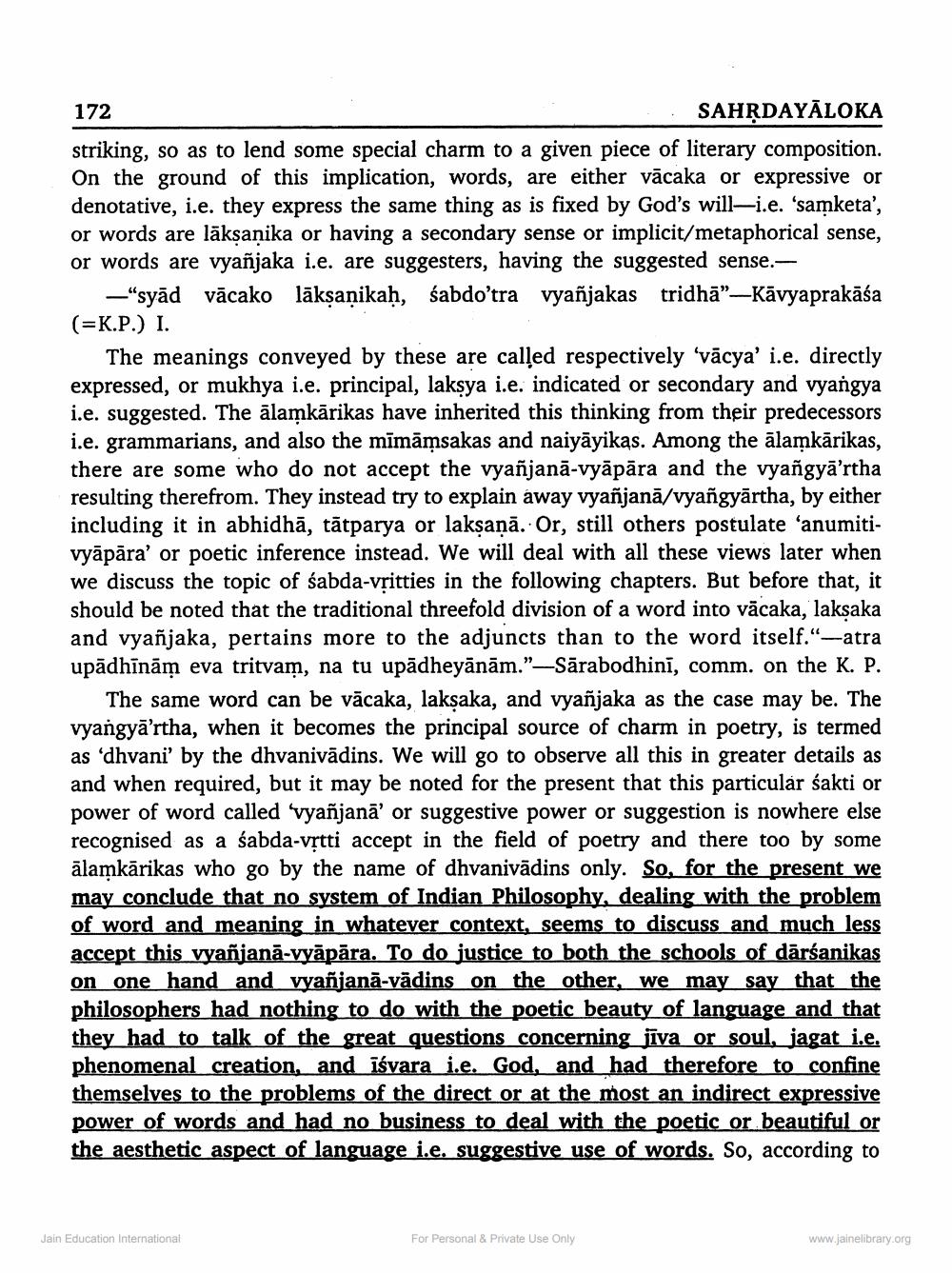________________
172
SAHRDAYĀLOKA
striking, so as to lend some special charm to a given piece of literary composition. On the ground of this implication, words, are either vācaka or expressive or denotative, i.e. they express the same thing as is fixed by God's will—i.e. 'samketa', or words are lāksanika or having a secondary sense or implicit/metaphorical sense, or words are vyañjaka i.e. are suggesters, having the suggested sense.
-"syād vācakolāksanikah, sabdo'tra vyañjakas tridhā"-Kävyaprakāśa (=K.P.) I.
The meanings conveyed by these are called respectively 'vācya' i.e. directly expressed, or mukhya i.e. principal, laksya i.e. indicated or secondary and vyangya i.e. suggested. The ālamkārikas have inherited this thinking from their predecessors i.e. grammarians, and also the mīmāmsakas and naiyāyikas. Among the ālamkārikas, there are some who do not accept the vyañjanā-vyāpāra and the vyañgyā'rtha resulting therefrom. They instead try to explain away vyañjanā/vyañgyārtha, by either including it in abhidhā, tātparya or laksaņā. Or, still others postulate 'anumitivyāpāra' or poetic inference instead. We will deal with all these views later when we discuss the topic of sabda-vritties in the following chapters. But before that, it should be noted that the traditional threefold division of a word into vācaka, laksaka and vyañjaka, pertains more to the adjuncts than to the word itself."-atra upādhīnām eva tritvam, na tu upādheyānām."-Sārabodhini, comm. on the K. P.
The same word can be vācaka, laksaka, and vyañjaka as the case may be. The vyangyā'rtha, when it becomes the principal source of charm in poetry, is termed as 'dhvani' by the dhvanivādins. We will go to observe all this in greater details as and when required, but it may be noted for the present that this particular sakti or power of word called vyañjanā' or suggestive power or suggestion is nowhere else recognised as a sabda-vrtti accept in the field of poetry and there too by some ālamkārikas who go by the name of dhvanivādins only. So, for the present we may conclude that no system of Indian Philosophy, dealing with the problem of word and meaning in whatever context, seems to discuss and much less accept this vyañjanā-vyāpāra. To do justice to both the schools of dārśanikas on one hand and vyañjanā-vādins on the other, we may say that the philosophers had nothing to do with the poetic beauty of language and that they had to talk of the great questions concerning jīva or soul, jagat i.e. phenomenal creation, and īśvara i.e. God, and had therefore to confine themselves to the problems of the direct or at the most an indirect expressive power of words and had no business to deal with the poetic or beautiful or the aesthetic aspect of language i.e. suggestive use of words. So, according to
Jain Education International
For Personal & Private Use Only
www.jainelibrary.org




